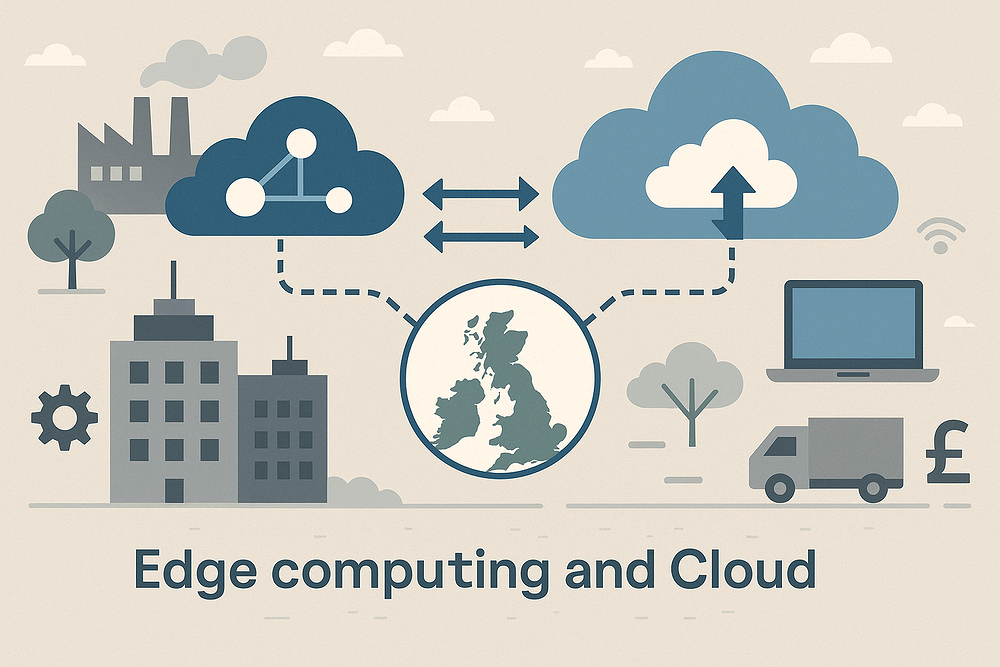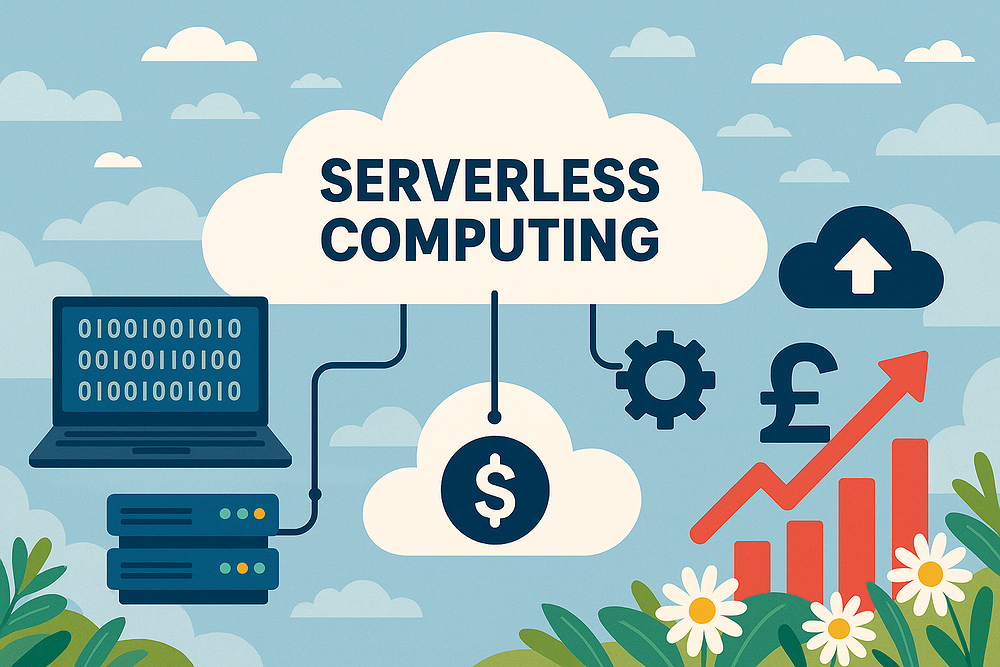5 Cloud Security Myths That Put Your Business Data at Risk (And How to Address Them)

In today's digital landscape, cloud computing has transformed from a cutting-edge technology to an essential business tool. For UK businesses of all sizes, the cloud offers unprecedented flexibility, scalability, and cost-efficiency. However, many organisations still harbour misconceptions about cloud security that not only create unnecessary anxiety but can actually leave their data more vulnerable.
As a UK-based computer services provider specialising in cloud computing solutions, we've encountered numerous clients who are hesitant to fully embrace the cloud due to security concerns. Let's debunk five common cloud security myths and provide practical advice on how to properly protect your business data.
Myth 1: "The Cloud Is Inherently Less Secure Than On-Premises Solutions"
This persistent myth stems from the idea that physically controlling your data and hardware automatically makes them more secure. Many business owners believe that keeping servers in-house provides better protection against data breaches.
The Reality: Modern cloud providers invest billions in security infrastructure, employ dedicated security teams, and implement protections that would be prohibitively expensive for most individual businesses. Microsoft Azure, AWS, and Google Cloud all maintain security standards that exceed what typical small-to-medium businesses can achieve independently.
How to Address It:
- Evaluate cloud providers based on their security certifications (look for ISO 27001, SOC 2, and GDPR compliance)
- Understand the shared responsibility model—know which security aspects are handled by your provider versus your own team
- Consider that 95% of cloud security failures through 2025 will be the customer's fault, not the provider's (according to Gartner)
Myth 2: "All Cloud Services Offer the Same Level of Security"
Many businesses assume that security is standardised across cloud providers, leading to decisions based solely on cost or feature sets rather than security capabilities.
The Reality: Cloud security offerings vary dramatically between providers and service tiers. Different providers specialise in different industries and compliance frameworks, and their security features reflect these specialisations.
How to Address It:
- Conduct thorough research on security features specific to your industry needs
- Compare encryption options, access controls, and compliance certifications
- Consider working with a specialist (like us) who understands the nuances between different cloud providers
- Request transparency around security incidents and response procedures
For example, healthcare organisations handling patient data require HIPAA-compliant cloud solutions with specific encryption and audit capabilities, while e-commerce businesses might prioritise PCI DSS compliance and DDoS protection.
Myth 3: "Migrating to the Cloud Means Losing Control of Our Data"
The fear of surrendering control over sensitive business information prevents many organisations from leveraging cloud benefits.
The Reality: Modern cloud platforms provide sophisticated control mechanisms that often enable more granular oversight than traditional systems. With proper configuration, you maintain complete control over who accesses your data, how it's used, and where it's stored.
How to Address It:
- Implement robust identity and access management (IAM) policies
- Utilise multi-factor authentication for all cloud services
- Set up comprehensive audit logging and monitoring
- Take advantage of data residency options to keep information within UK or EU boundaries
- Regularly review permission settings and access reports
With these measures in place, you'll likely have better visibility into your data access patterns than with traditional infrastructure.
Myth 4: "Our Data Is Too Sensitive for the Cloud"
Some organisations, particularly those in financial services, healthcare, or government sectors, believe their data is simply too sensitive to entrust to cloud providers.
The Reality: Cloud providers have developed specialised solutions precisely for highly regulated industries. With proper encryption, data remains protected even if the cloud infrastructure itself were somehow compromised.
How to Address It:
- Employ end-to-end encryption for sensitive data
- Consider a hybrid cloud approach, keeping the most sensitive information in a private cloud while leveraging public cloud benefits for other workloads
- Implement a zero-trust security model regardless of where data resides
- Use client-side encryption keys that remain in your control
- Regularly test your security posture through penetration testing and security assessments
The UK's National Cyber Security Centre (NCSC) itself has endorsed cloud services as appropriate even for many government workloads when properly secured.
Myth 5: "Cloud Security Is Something We Can Set Up Once and Forget"
Perhaps the most dangerous myth is that cloud security is a one-time implementation rather than an ongoing process.
The Reality: Cloud security requires continuous attention, regular updates, and adaptation to evolving threats. The cloud environment changes rapidly, with providers constantly adding new features and security capabilities.
How to Address It:
- Establish a regular security review cadence (at least quarterly)
- Implement automated compliance monitoring and security scanning
- Stay current with security updates and new protection features
- Train staff continuously on security best practices
- Develop and regularly test an incident response plan
- Consider working with managed security service providers who specialise in cloud environments
Moving Forward Securely in the Cloud
For UK businesses, the cloud represents an opportunity to enhance not only operational efficiency but also security posture. By understanding and addressing these common myths, you can make informed decisions about your cloud strategy.
The most secure cloud implementations combine:
- Thoughtful provider selection based on your specific industry and compliance needs
- Proper configuration of security controls and monitoring
- Regular training for all employees who interact with cloud resources
- Continuous assessment of security posture against evolving threats
- Clear incident response procedures should an issue arise
At our company, we specialise in helping UK businesses implement secure cloud solutions that align with both their operational needs and security requirements. Rather than viewing security as an obstacle to cloud adoption, we see it as an essential foundation that enables businesses to confidently leverage all the benefits cloud computing offers.
By debunking these myths and implementing proper security measures, your business can enjoy the scalability, cost-effectiveness, and innovation the cloud enables—all while keeping your valuable data protected.
If you'd like to discuss how we can help your organisation build a secure cloud strategy tailored to your specific needs, please don't hesitate to contact us. Our team of UK-based cloud security specialists would be happy to assist.
This article is intended as general guidance and does not constitute legal advice regarding data protection or compliance requirements. We recommend consulting with legal professionals regarding your specific regulatory obligations.
Talk to us about your next project
Our team of experts is ready to help bring your ideas to life with solutions tailored to your business.
Get in Touch

